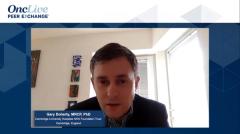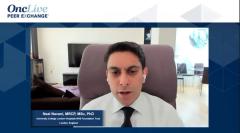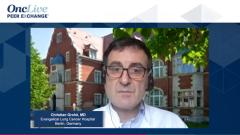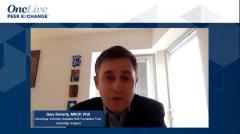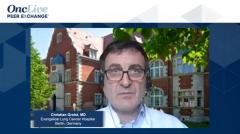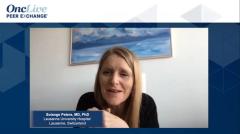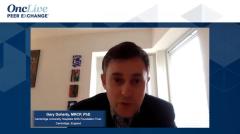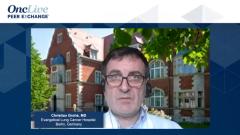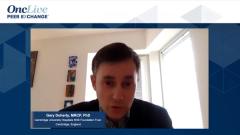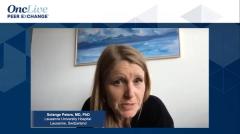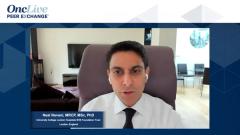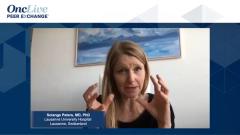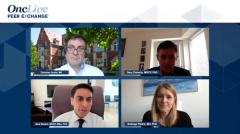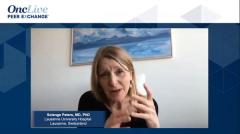
EGFR+ NSCLC: Advice for Community Oncologists
A panel of experts in thoracic oncology concludes the discussion by emphasizing the importance of conducting reflex molecular testing, considering systemic therapy in all patients, and utilizing shared decision-making models.
Episodes in this series

Neal Navani, MRCP, MSc, PhD: I’d like to thank all of you for this rich and informative discussion. Before we conclude, I’d like to get some final thoughts from each of you. Gary?
Gary Doherty, MRCP, PhD: We’ve covered a lot. My final thoughts, or recommendations, or take-home pointers, would be to reflex test and use NGS [next-generation sequencing]. Optimize your timelines from radiological diagnosis to molecular report. Stage patients well. Always keep a close eye on the brain of your patients with oncogene addictions, including patients with EGFR mutations. Put the patient in the driving seat. Where there’s equipoise, make sure the patient is aware of the data in a digestible way. Ultimately, they are the ones who are taking these drugs, and they should be making the decisions with the best information available.
Neal Navani, MRCP, MSc, PhD: Thank you. Christian, can we get some final thoughts from you?
Christian Grohé, MD: Thank you very much for this very helpful and very fruitful discussion. My thoughts are that we should consider systemic therapy for all patients at all stages during the disease course. If so, please enter all the data you’ve obtained in a prospective registry and consider having a pilot help you get these data back on track to develop the best recommendation you can have for that patient.
Neal Navani, MRCP, MSc, PhD: Thank you. Solange, any final words?
Solange Peters, MD, PhD: I don’t want to repeat what my colleagues told you, but I fully agree. I’d like to go back to the main point of the discussion, which was the adjuvant trial. As always, it’s about the driver’s seat. We all have our attitudes and conviction in everything we do, because nothing is black-and-white, but we must always keep in mind—and that’s what I tell my patients—what you would choose for yourself. Oncogene disease or EGFR mutations might happen to all of us at any time, because this isn’t related to something you’ve been doing in your life, like smoking. If you have this stage II non–small cell lung cancer that’s EGFR mutated with N1 disease, would you—yes or no—get surgery? Would you receive adjuvant chemotherapy and ask for osimertinib? Once you’ve answered these questions you’re ready to speak to your patients. In my seat, if I had to face this situation, I’d try to get all these: the best surgeon, the chemotherapy if needed, and of course osimertinib. At the time, that’s what we know, but this feeling might sometimes help your patients making those decisions too.
Neal Navani, MRCP, MSc, PhD: Brilliant. Thank you so much. Gary, Christian, and Solange, thank you so much for your time and expertise, and thank you to our audience for listening. We hope you found this OncLive® Peer Exchange® discussion to be useful and informative. Goodbye for now.
Transcript Edited for Clarity


